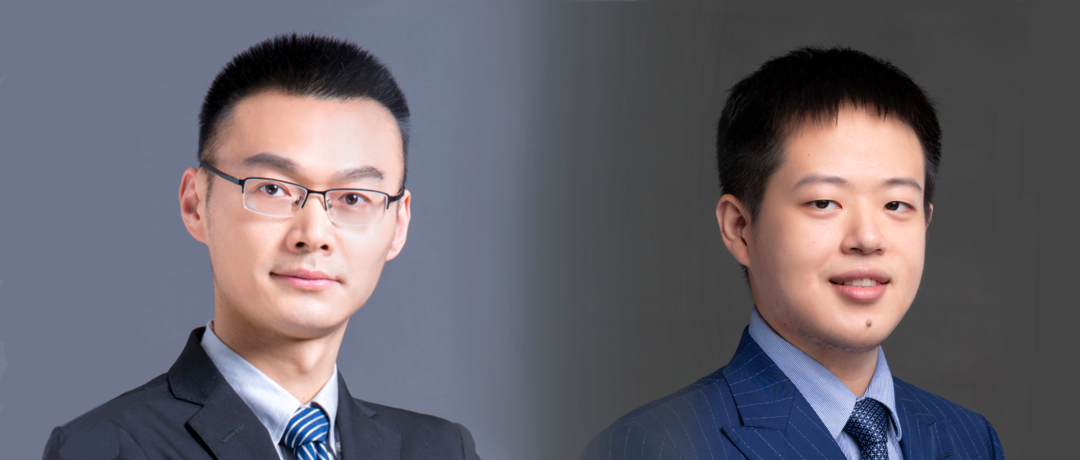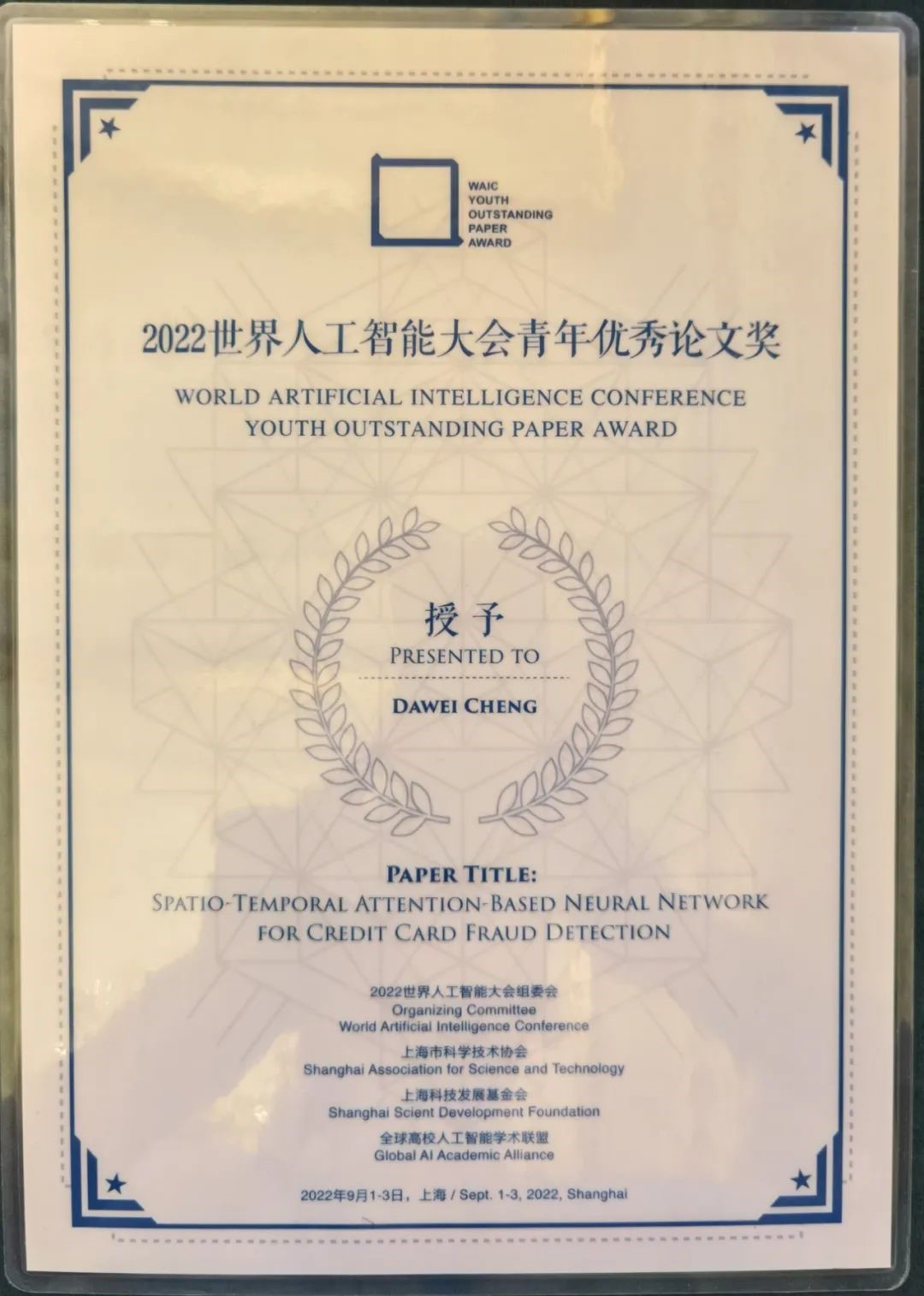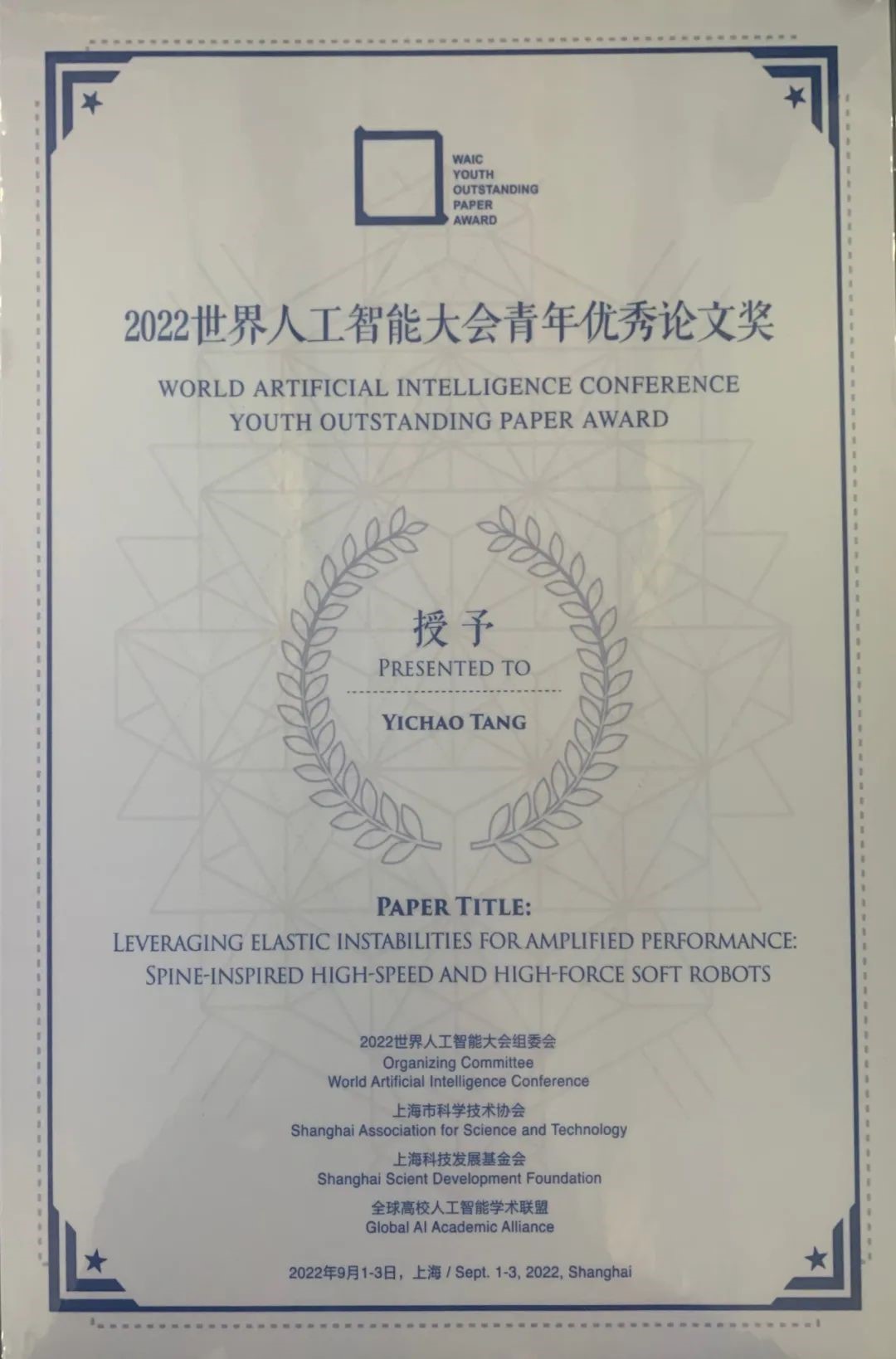On August 26, at the first Young Scientists Forum of the World Artificial Intelligence Conference (WAIC) organized by the Shanghai Association for Science and Technology and the Shanghai Science and Technology Development Foundation, the winners of the 2022 World Artificial Intelligence Conference Youth Outstanding Paper Award were announced. Ten papers were awarded, of which were two papers by young teachers from Tongji University. The papers were composed by Assistant Professor CHENG Dawei of the School of Electronic and Information Engineering and Professor TANG Yichao of the School of Mechanical and Energy Engineering. Other winners were from universities, research institutions, and enterprises at home and abroad, including Tsinghua University, Oxford University, Huazhong University of Science and Technology, and Peking University.

CHENG Dawei (left) and TANG Yichao (right)
The WAIC Youth Outstanding Paper Award is sponsored by the WAIC Organizing Committee, which collects outstanding papers from young scientists under 40 around the world to encourage more young people to participate in the basic research of artificial intelligence. This year, a total of 155 contributions were received from internationally renowned universities, research institutions, and enterprises. After expert review, 20 papers entered the final evaluation, 10 papers were selected for the 2022 WAIC Youth Outstanding Paper Award and 10 papers were nominated for the award.
CHENG Dawei's paper, entitled "Spatio-Temporal Attention-Based Neural Network for Credit Card Fraud Detection", mainly focuses on data-driven financial transaction fraud detection. Traditional methods are mainly based on the detection rules and feature engineering of domain experience, which cannot effectively deal with the rapidly changing fraud means. Through the data-driven analysis, this paper found the "time aggregation" and "space aggregation" of fraud means, while traditional machine learning mainly aims at two-dimensional data and faces limitations in joint learning of the above spatio-temporal aggregation characteristics. This paper proposes a way to express the fraud behavior of spatiotemporal patterns as a high-dimensional tensor structure, and designs a three-dimensional convolutional network and spatiotemporal attention mechanism to jointly learn and associate fraud behavior patterns. The research results show that the proposed method performs better than the benchmark comparison method in AUC and precision-recall curves. The empirical research on fraud detection results further proves the effectiveness of this method in detecting suspicious transactions and mining fraud patterns. The paper was accepted by the American Association of Artificial Intelligence (AAAI) as one to promote AI for social influence.

Award presented to CHENG Dawei
TANG Yichao's paper is entitled "Leveling elastic instabilities for amplified performance: Spine-inspired high-speed and high-force soft robots". In view of the challenges posed by the high-speed movement of soft robots, inspired by the biomechanics of cheetahs' vertebrae, TANG's research group has developed a new multi-purpose, multi-task soft robot (LEAP robot), which has a bistable energy storage spine that can quickly store and release enough energy to simulate the high-speed land and underwater movement of vertebrates, and can also flexibly grasp vulnerable objects. The robot can reach a maximum speed of 2.7 lengths/second, more than tripling the previous record. Larger LEAP robots can be used for search and rescue, while smaller LEAP robots can be used for health monitoring in vivo, such as exploring the cardiovascular interior, or for drug loading and release in vivo. This research work was published in Science Advances, a sub-journal of Science.

Award presented to TANG Yichao